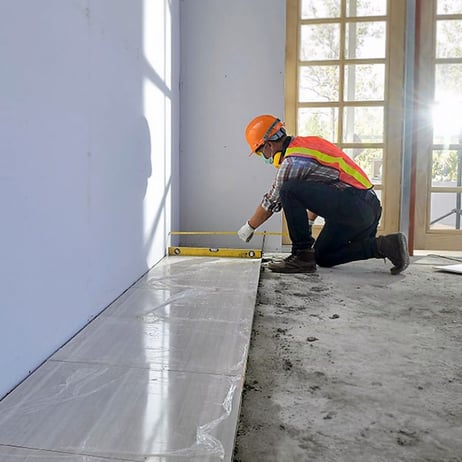Substrate Preparation: Know What Your Commercial Flooring Contractor is Using
After talking with several structural engineers, we know that substrate preparation is one of the most important aspects of any commercial flooring project. The substrate is the base layer that the flooring is installed on, and it is essential that it is properly prepared in order to ensure a long-lasting and durable floor.

There are a number of factors that need to be considered when preparing the substrate for commercial flooring, including the type of flooring being installed, the traffic level in the area, and the climate. The substrate must be level, smooth, and free of any cracks or voids. It must also be strong enough to support the weight of the flooring and the expected traffic.
There are a number of different methods that can be used to prepare the substrate for commercial flooring. The most common method is to use a concrete slab. Concrete is a strong and durable material that is well-suited for commercial flooring. However, it is important to make sure that the concrete slab is properly cured before the flooring is installed.
Another common method for preparing the substrate for commercial flooring is to use plywood or OSB subflooring. Plywood and OSB are both strong and durable materials that can be used to support a variety of flooring types. However, it is important to make sure that the subflooring is properly installed and that there are no gaps or voids between the boards.
No matter what method is used to prepare the substrate, it is important that the work is done by a qualified professional. A professional will have the experience and expertise to ensure that the substrate is properly prepared for the type of flooring being installed.
Why You Don't Want a Low Bidder on a Commercial Flooring or Tile Project to Use Low Quality Materials You Can't See or Test
When you're hiring a contractor for a commercial flooring or tile project, it's tempting to go with the lowest bidder. After all, who doesn't want to save money? However, it's important to remember that you get what you pay for. A low bidder is likely to use low-quality materials and/or cut corners on the installation process. This could lead to problems down the road, such as cracks, leaks, and premature wear and tear.
In addition, low-quality materials may not be compatible with your flooring or tile. This could lead to problems such as discoloration, staining, and even structural damage.
It's important to choose a contractor who has experience with the type of flooring or tile you're installing. They should also be willing to use high-quality materials and follow proper installation procedures. By doing your research and choosing a qualified contractor, you can ensure that your commercial flooring or tile project is done right the first time.

